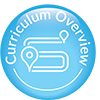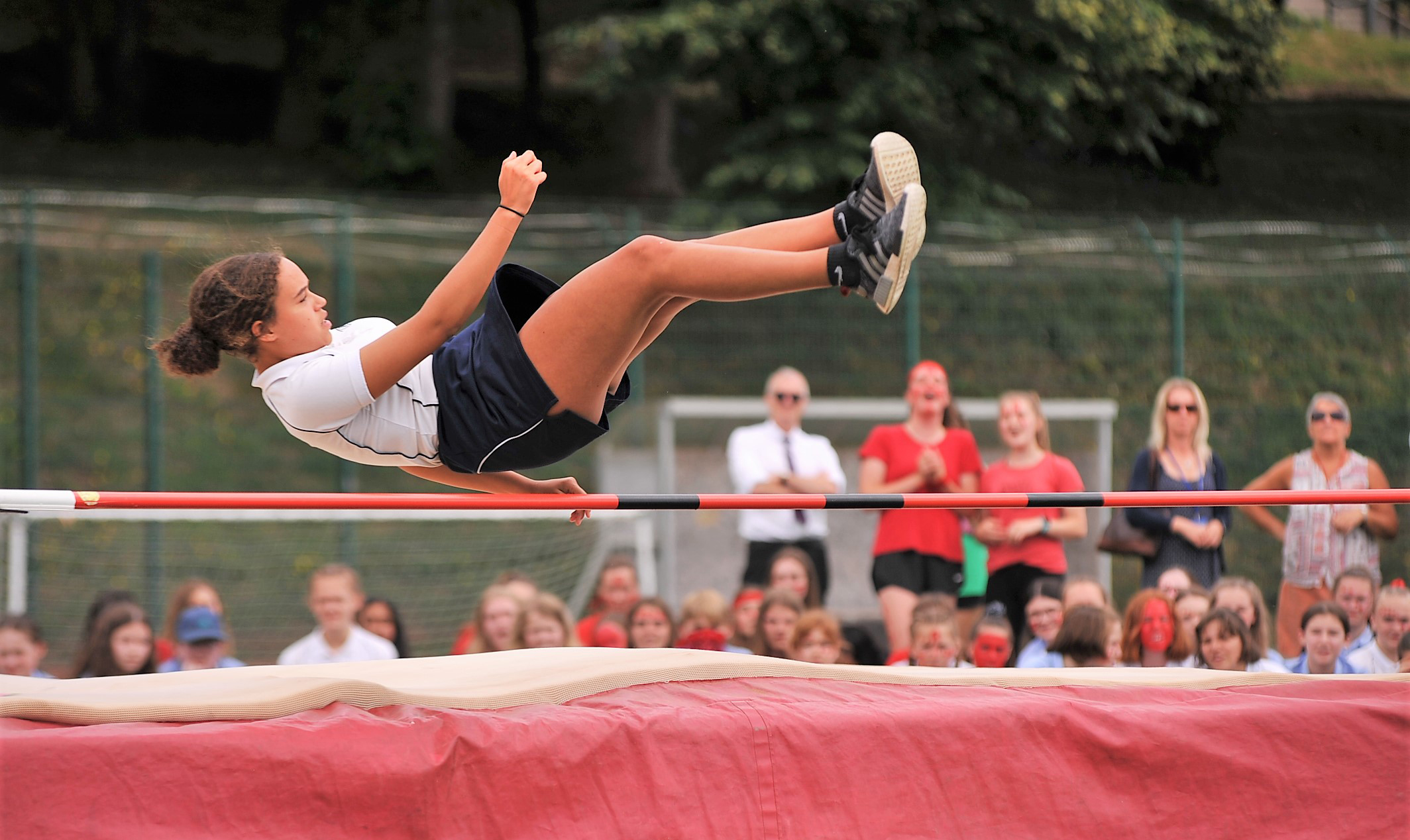
30 Shiphay Lane, Torquay TQ2 7DY
E: admin@tggsacademy.org
T: 01803 613215
Y7-11 Absence Line: 01803 653 750
30 Shiphay Lane, Torquay TQ2 7DY
E: admin@tggsacademy.org T: 01803 613215
Y7-11 Absence Line: 01803 653 750

Physical Education at TGGS
Current Teaching Staff:
Ms C Oyo - Head of Department
Mrs S Greaves, Miss C McIlwrath, Mr A Hulbert
Curriculum Intent:
At Torquay Girls’ Grammar School we strive to inspire an active generation to enjoy Physical Education, through our varied and challenging curriculum. We aim to develop students' physical competence, confidence and their ability to perform in a range of physical activities. Through this they learn how to co-operate and collaborate with others, as part of a team, understanding fairness, resilience, and equity of play to embed long lasting values. It is our belief that Physical Education should be a positive and motivating experience and not only improve physical health but is vital for promoting both social and mental health and well-being. In addition, it promotes positive attitudes towards an active and healthy lifestyle and encourages students to continue with physical activity for a lifetime.
Subject Overview
In addition to its renown for academic achievement, TGGS also has an outstanding reputation for sporting excellence, both at regional, county and national level.
At Torquay Girls’ Grammar School we strive to inspire an active generation to enjoy Physical Education, encourage each other and achieve. We aim to develop students' physical competence and confidence and their ability to perform in a range of activities.
P.E. promotes physical skills and knowledge about the body in action and provides opportunities for students to be creative, competitive and to face up to different challenges as individuals and in groups and teams.
It is our belief that Physical Education not only improves physical health but is vital form promoting both social and mental health and well-being. In addition, it promotes positive attitudes towards active and healthy lifestyles, and we aim to encourage students to continue being active throughout life.
Every year students have the opportunity to join sports clubs every lunchtime. We offer a wide variety including netball, hockey, dance, gymnastics, cricket, football, athletics, and rounders. We also run teams in hockey, netball, football, rounders, athletics and swimming. We compete against local schools and in county, regional and national competitions. Every year students are invited to take part in the annual gymnastic and dance show which parents are invited to come and watch. Every student has the opportunity to take part in House activities throughout the year. Saints Southwest offer an after-school football club for students to particate in.
SMSC
The PE department can encourage a willingness to participate in sporting opportunities that will help to develop positive attitudes towards different religious, ethnic and socio-economic groups in the local, national and global communities.
Students in PE can use a range of social skills in different contexts, including working and socialising with students from different religious, ethnic and socio-economic backgrounds.
The willingness to participate in a variety of social settings, cooperating well with others and being able to resolve conflicts effectively.
An interest in and understanding of the way communities and societies function at a variety of levels.
Also, students can develop their friendships and social mixing through involvement in sports.
Examples of Social lessons in Physical Education:
– Creating a sense of community in lessons
– Encourage students to recognise and respect social differences and similarities
– Celebrate sporting success both in and out of school
– Use of sports ambassadors and GCSE PE students running clubs and activities
– Encouraging the attendance to extracurricular activities
– Promoting teamwork throughout lessons supporting one another to develop their skills in a cooperative situation.
– Pupils to develop the necessary skills to work in teams or pairs
– Giving the pupils roles such as leaders, coaches, or umpires
– Competitive sports allow students to develop their communication skills and leadership skills
Cultural:
The PE department can encourage a willingness to participate in sporting opportunities that will help to develop positive attitudes towards different religious, ethnic and socio-economic groups in the local, national and global communities.
Examples of Cultural lessons in Physical Education:
– Learning about the developments of sports in different countries
– Learning where different sports originate from and what the national sports of different countries are
– World Cups and Olympic games
– Exploring and respect a variety of different cultural dances
– Gaining an understanding of different sports and their foundations
– Use of international examples of different athletes and their achievements
– Cultural engagement through elite performers both at school and in their own sporting environment.
British Values
| British Values | Physical Education can provide | Evidence |
| Democracy |
|
|
| The Rule of Law |
|
|
| Individual Liberty |
There is a buddy and mentoring system in PE. (in development) |
Students use the buddy and mentoring system to build confidence and this is apparent in how they work together. (in development) |
| Mutual Respect and Tolerance |
|
|
Reading
Reading is covered mostly through the student workbooks where they have a number of tasks to complete all related to the activities they are participating in. In addition, at GCSE level the course is 60% theory and therefore, each student has a text book. They are encouraged to read around each topic – researching the internet for further details.
Students will do presentations on some topics which they must investigate topics to include.
Oracy
Oracy is used throughout the PE lessons in pairs and group work where they must work together to problem solve. This can include choreographing a dance piece as well as composing gymnastic sequence.
Students will also be encouraged to officiated activities in lesson ie umpire small and full netball games.
Student discuss strengths and weaknesses of own and others work, and discover ways to improve.
Students are challenged to communicate using subject specific terminology when they are taking on coaching roles.
GCSE students will present to the class on topics.
Careers
Discussions in lessons around how topics may support/link with particular pathways. Boards are on display signposting the relevant university and job opportunities that come with taking GCSE PE and/or A Level. Opportunities for high level performance in sport are available for those who are motivated to pursue success in sport. For example, National Schools Netball & Hockey, Cup Football and Regional Softball Cricket.
Character skills
We link to the whole school intent of equipping students with good character skills in a number of ways throughout their PE journey.
The definition of character is ‘the mental and moral qualities distinctive to an individual.’ and within PE at TGGS we help guide and teach the character values of Honesty, Teamwork, Respect, Self-belief, Passion Determination.
For example: the national curriculum states that at key stages 3 and 4
…’Pupils should be taught to: use a range of tactics and strategies to overcome opponents in direct competition through team and individual games’…
We choose to do this though lessons in netball, hockey, rounders and tennis at where students learn the basic skills on each game in year 7 working individually and in pairs and small groups enabling them to develop their teamwork skills and their ability to respect other people.
As they go through the years they learn more complex skills including developing their tactical awareness and ability to outwit their opponents which increases their determination to succeed. House competitions also lend them self to increasing determination as well as working collaboratively to choose a team from there form and with the example of netball to ensure that all students who want to play are included.
At the end of all matches internally and against other schools students will cheer the opposing team at the end f the game whether they won or lost.
We as a department instil respect for the rules of PE by setting a high expectations and good sportsmanship.
Respect for the rules and high expectations of dress and removing their jewellery helps the students to respect the health and safety rules of the PE department, school and Governing bodies of each sport.










